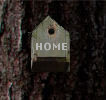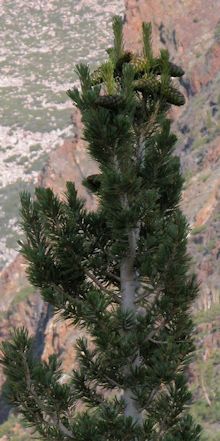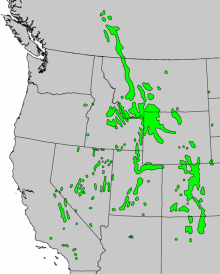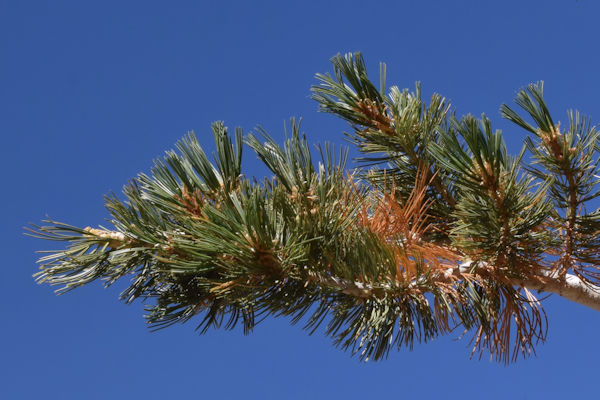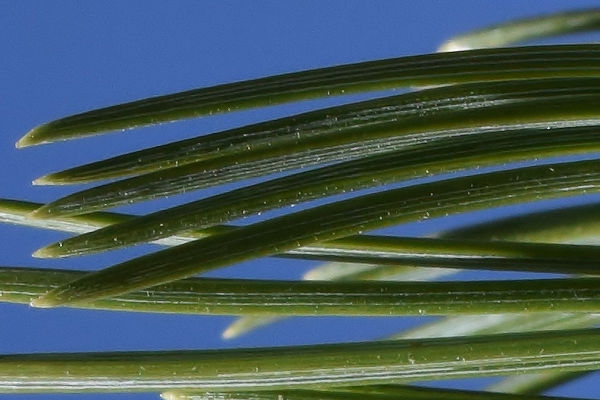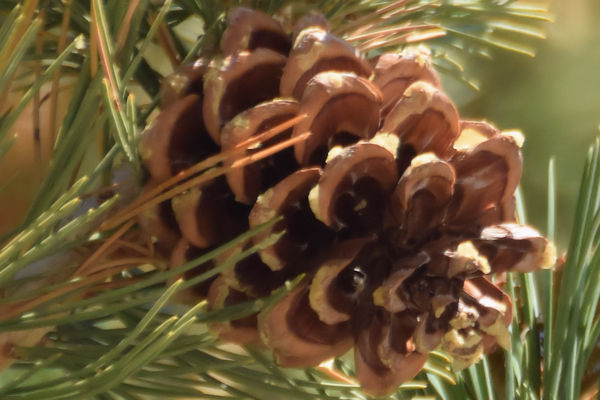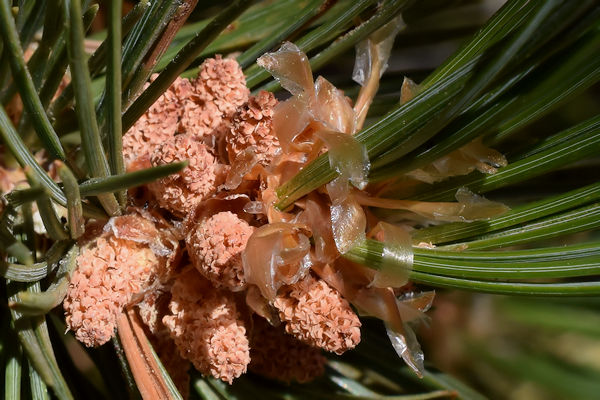|
This high-elevation tree of the Rocky
Mountains is
rare in the Pacific Northwest. It can grow straight to a height of 60
feet (18 meters), but is often shorter and contorted.
Needles:
Limber pine
has 5 needles per bundle, like Whitebark
Pine.
Cones:
You
can
distinguish limber pine from whitebark pine by their cones. Limber pine
cones are
larger, 3 to 7 inches
long. They are green, turning brown as they mature, while immature
Whitebark
Pine cones are purple. Limber pine cones open to disperse their seeds
and usually
fall to the ground intact, so you usually find cones underneath limber
pine, but almost never under whitebark pine. Whitebark pine cones
remain closed on the tree until they are pulled apart by birds
harvesting the seeds.
Bark:
The bark is
light
gray, and the twigs are flexible like
rope. On larger trees, it becomes brown with long scaly plates and
furrows.
Where
it grows: Common
in the Rocky Mountains, limber pine is rare in Oregon, growing only in
the high elevations of the Wallowa Mountains.
Uses:
Like whitebark pine, limber pine
produces large seeds, often called "pine nuts." They are a
food
source for both birds and rodents.
Names:
Both the
common
and scientific names refer to the flexible twigs. Other common names:
Rocky Mountain pine, white pine, limbertwig.
Pronounce Pinus flexilis.
|
